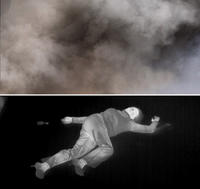-
Vumii unveils new thermal imaging cameras

Vumii, a firm that specializes in developing surveillance cameras, recently announced the addition of four new thermal imaging camera lines, expanding on its existing line of LED and laser-illuminated cameras
-
-
D.C. continues to struggle with orderly evacuations

Last week’s earthquake that struck less than ninety miles outside of Washington, D.C. exposed the city’s continuing difficulties in effectively evacuating its residents; after the 5.9 magnitude earthquake struck the region, commuters were left stranded for hours as road traffic ground to a halt and trains became overcrowded and delayed due to speed restrictions because of the quake
-
-
Wastewater recycling adds to greenhouse gas emissions

New research shows that wastewater recycling processes may generate more greenhouse gases than traditional water-treatment processes; still, there are good reasons to continue keep wastewater recycling among the water-resource tools for urban areas
-
-
Identifying bad guys in a crowd
New CCTV technology aims to do two things: for post-incident forensic analysis the system retraces a person’s steps after they have left a site; and for real-time analysis the system alerts security to immediate or imminent threats; researchers say the technology will also address privacy concerns: if a computer could automatically detect and preserve footage “of interest,” the images of the rest of the people captured by CCTVs can be safely deleted, minimizing the invasion to privacy
-
-
San Antonio’s "Piracy King" pleads guilty
Police in San Antonio recently put an end to the “Piracy King’s” reign; last Thursday, Ernest Christopher Smith, nicknamed the piracy king by local law enforcement officials because of the large number of fake DVDs he sold at local flea markets, pleaded guilty to trafficking in counterfeit goods.
-
-
New training facility features simulated bus, air, and rail stations

On Tuesday DHS Secretary Janet Napolitano was in Brunswick, Georgia for the grand opening of a sophisticated new $5.3 million counter-terrorism training center for law enforcement officials; the 22,000 square-foot facility features several simulation areas including a mock bus terminal, subway station, and an airport terminal
-
-
Quake disrupts East Coast cell service

Tuesday’s 5.9 magnitude earthquake that struck Virginia and could be felt across the northeast, exposed continuing weaknesses in U.S. emergency communications networks; residents in the northeast experienced difficulty making calls on their cell phones, despite no reported damage to communications infrastructure
-
-
Union Pacific settles drug fines, invests $50M in border security
Railroad giant Union Pacific Corp. agreed last week to invest $50 million to help protect the U.S.-Mexico border and to improve supply chain security; the announcement comes as the settlement of an ongoing dispute between the railroad company and U.S. border officials over nearly $500 million in fines
-
-
Detroit police to stop responding to unverified burglar alarms
As of Monday, 22 August, the Detroit police department will no longer respond to burglar alarms unless security companies can verify the need for an officer; the policy is aimed at reducing the number of false alarms and allowing officers more time to focus on critical duties; more than 98 percent of all burglar alarms are false alarms; critics of the new policy fear that it will exacerbate safety conditions in a city already plagued by crime and slow police response times
-
-
Sector Report for Tuesday, 23 August 2011: Law Enforcement Technology
This report contains the following stories.
Plus 1 additional story.
-
-
Combating tech-fueled flash mobs a new problem for police
With the help of cell phones and social networking sites, spontaneous swarms of youths have rushed into convenience stores or assaulted bystanders in a rash of “flash mobs” across the United States; law enforcement officials are struggling to find a way to effectively combat this new phenomenon which does not impede on privacy rights
-
-
New FBI app helps parents and police find missing children
The FBI has released its first mobile application aimed at helping parents locate their children when they go missing the Child ID app allows parents to electronically store photos and other vital information so that they will be able to provide law enforcement with critical details in a timely fashion if their child goes missing
-
-
"Cop shops" in Texas help fight apartment crime
Residents in Texas apartment complexes have begun dedicating entire units to police officers so they have a place to rest, take a break, and fill out reports; the cop shops help minimize crime by keeping officers in parts of town where their presence is needed
-
-
Water mist puts out fires at low pressure
A new water mist system allows for fires to be extinguished from a distance of eight meters; the system’s special nozzles generate a fine mist of tiny water droplets; the water and the propellant nitrogen are non-hazardous, environmentally friendly, and leave no residues
-
-
Antenna-equipped garments here
To make communications devices more reliable, researchers are working on incorporating radio antennas directly into clothing, using plastic film and metallic thread; the new antenna design has a range four times larger than that of a conventional antenna worn on the body — one that is used by American soldiers today
-
More headlines
The long view
Tantalizing Method to Study Cyberdeterrence
Tantalus is unlike most war games because it is experimental instead of experiential — the immersive game differs by overlapping scientific rigor and quantitative assessment methods with the experimental sciences, and experimental war gaming provides insightful data for real-world cyberattacks.
Using Drone Swarms to Fight Forest Fires
Forest fires are becoming increasingly catastrophic across the world, accelerated by climate change. Researchers are using multiple swarms of drones to tackle natural disasters like forest fires.
Testing Cutting-Edge Counter-Drone Technology
Drones have many positive applications, bad actors can use them for nefarious purposes. Two recent field demonstrations brought government, academia, and industry together to evaluate innovative counter-unmanned aircraft systems.
European Arms Imports Nearly Double, U.S. and French Exports Rise, and Russian Exports Fall Sharply
States in Europe almost doubled their imports of major arms (+94 per cent) between 2014–18 and 2019–23. The United States increased its arms exports by 17 per cent between 2014–18 and 2019–23, while Russia’s arms exports halved. Russia was for the first time the third largest arms exporter, falling just behind France.
How Climate Change Will Affect Conflict and U.S. Military Operations
“People talk about climate change as a threat multiplier,” said Karen Sudkamp, an associate director of the Infrastructure, Immigration, and Security Operations Program within the RAND Homeland Security Research Division. “But at what point do we need to start talking about the threat multiplier actually becoming a significant threat all its own?”
The Tech Apocalypse Panic is Driven by AI Boosters, Military Tacticians, and Movies
From popular films like a War Games or The Terminator to a U.S. State Department-commissioned report on the security risk of weaponized AI, there has been a tremendous amount of hand wringing and nervousness about how so-called artificial intelligence might end up destroying the world. There is one easy way to avoid a lot of this and prevent a self-inflicted doomsday: don’t give computers the capability to launch devastating weapons.
